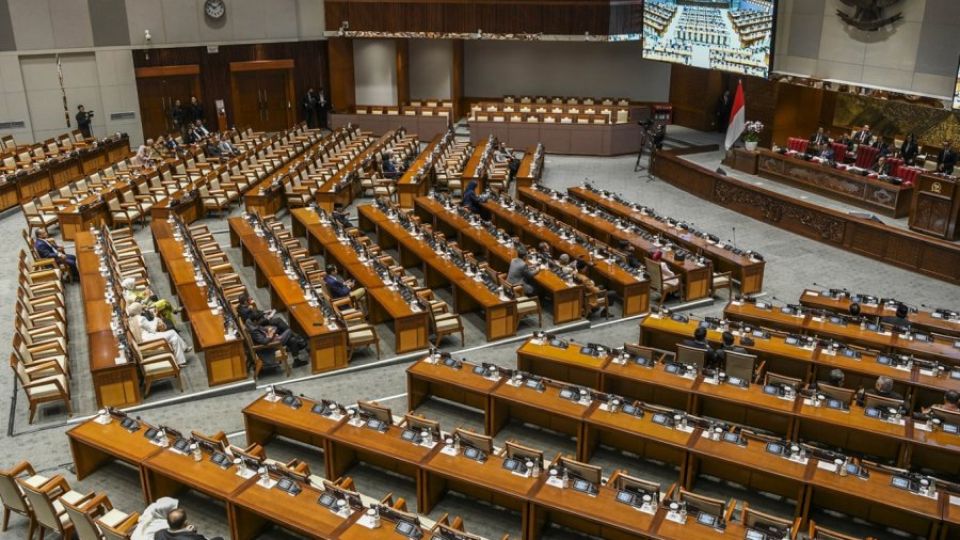March 7, 2024
JAKARTA – House of Representatives members marked their return from recess on Tuesday with some factions calling for the House to open an inquiry into reports of irregularities and fraud that allegedly marred last month’s election.
These lawmakers however have yet to present a formal proposal, and the Indonesian Democratic Party of Struggle (PDI-P), the main proponent of an inquiry, appears to be biding its time to prepare its case and look for allies, as some have started to shift their tone.
Unofficial results of quick counts showed that Prabowo Subianto of the Gerindra Party, who ran with President Joko “Jokowi” Widodo’s son Gibran Rakabuming Raka, has won a comfortable lead in the presidential race ahead of rivals Anies Baswedan and the PDI-P’s candidate Ganjar Pranowo.
But both losing camps have refused to concede defeat in an election they claimed was tainted by voter intimidation and the misuse of state resources, leading to calls from the PDI-P for a House inquiry. Another party in the Ganjar camp and all three parties that supported Anies had reportedly thrown their weight behind Ganjar’s suggestion some two weeks before the House returned from recess.
During Tuesday’s House plenary, the pro-Anies Prosperous Justice Party (PKS) was the first to voice a call for an inquiry, with party member Aus Hidayat Nur saying that an inquiry would help to answer “growing public suspicions” of election fraud.
He was promptly followed by Luluk Nur Hamidah of the National Awakening Party (PKB), another party in Anies camp. In calling for a House inquiry, Luluk said that morals and ethics had stooped to an all-time low during last month’s election.
PDI-P politician Aria Bima also voiced a demand for an inquiry, saying that the House needed to “optimize” the monitoring functions is used for the Feb. 14 presidential and legislative elections.
Rebuttals
These calls were met by rebuttals from pro-Prabowo parties.
Gerindra lawmaker Kamrussamad said that there were more pressing matters for the House to attend to, while Herman Khaeron of the Democratic Party said political parties need to refrain from making wild allegations and do their due diligence before proposing an inquiry.
The PDI-P’s only pro-Ganjar ally in the legislature, the United Development Party (PPP), and the NasDem Party, the main backer of Anies’ presidential bid, were silent during the plenary session.
House deputy speaker Sufi Dasco Ahmad of Gerindra presided over the plenary on Tuesday on behalf of speaker Puan Maharani of the PDI-P who was in Paris on a working visit. Just over half of the lawmakers attended the plenary in-person or virtually.
Taking the initiative
It remains to be seen whether the suggestions for an inquiry will materialize into a formal motion.
For such an inquiry to be opened, 25 House members must propose it at a plenary session and the request must then be approved by more than half of the lawmakers attending the session.
Speaking to reporters after the plenary, Aria of the PDI-P said his party would put forward a formal proposal once it has completed preparing its arguments.
“Everyone can make a statement. But we must wait and see which stance [the other House factions] will take, whether they will only support [the inquiry] or participate in proposing it,” Aria said, adding that the PDI-P has yet to formally open communications with another House faction.
Separately, NasDem lawmaker Sugeng Suparwoto said that his party would be proactive about putting forward a proposal, along with the PKS and the PKB, after the General Elections Commission (KPU) announces its official tally on March 20 at the latest.
“Even without the PDI-P’s support, NasDem will still push for a House inquiry. But that will happen on March 21 at the earliest,” he said.
Experts however say the success of the inquiry will depend on how well pro-inquiry parties can work together.
A survey by the research arm of Kompas on Monday found that 62 percent of respondents from a total of 512 people surveyed said they supported the idea of a House inquiry.


